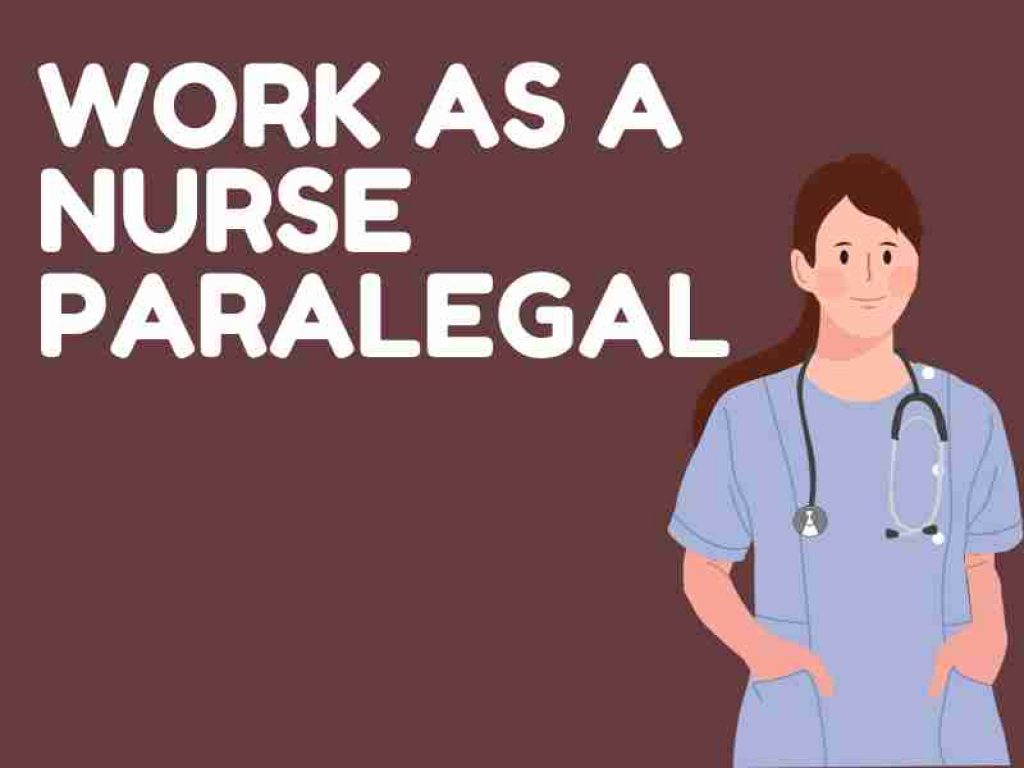
What Is Nurse Paralegal?
Learn what is nurse paralegal? How can you become a nurse paralegal and discover the many benefits of joining this important, rewarding profession?
What is nurse paralegal?
The legal and medical fields are among the most sought-after and lucrative in the economy. It’s not uncommon for nurses and lawyers to work together, which is why the field of nurse paralegal studies is gaining popularity.
Medical lawyers, nurses, and paralegals are professionals who specialize in different aspects of medical law. Many registered nurses find the idea of expanding their careers by working as paralegals to be appealing. Because of the significance of the role, however, becoming a nurse paralegal requires meeting stringent requirements.

Researching the field and the prerequisites for entry is a good idea before pursuing a job as a nurse paralegal. Some people might be called to testify in legal proceedings concerning claims or litigation. One of the fastest-growing industries in the United States is nursing. The Bureau of Labor Statistics predicts that there will be 26 percent more jobs for nurses by 2020.
This means that there will be 712,000 more nursing jobs in the United States in ten years. The variety of nursing specializations is often overlooked. One of the options is to specialize as a nurse paralegal. This field is rapidly developing into one of the most sought-after and lucrative in the economy.
How Does One Work As A Nurse Paralegal?
The legal responsibilities of nurses are taken care of by nurse paralegals. Professionals with backgrounds in both medicine and the law are in high demand in health maintenance organizations (HMOs), insurance companies (ISOs), hospitals (hospitals), government agencies (government agencies), management firms (management firms), and law firms. The term “nurse consultant” is also commonly used to describe them.

The nurse paralegal’s job is to examine every facet of nursing care to ensure that it is being administered legally and that no one infringes on anyone else’s rights. They will be integral to any legal team led by an attorney and report directly to them.
Why Should You Think About Become A Nurse Paralegal?
It’s reasonable to assume that there will be more legal action involving nurses in the coming years, given the projected growth of nursing over the next decade or two. The demand for specialized medical services drives this growth.
Your expertise as a nurse paralegal will be used in this situation. While neither the growth nor the prognosis of the nurse paralegal field can be predicted with any degree of certainty, it stands to reason that demand for nurse paralegals will increase as the number of available nursing positions increases.
Paralegal Nursing Salary
According to the job site “Indeed,” the average annual income for a nurse paralegal in 2013 was $68,000. However, the South was the region with the greatest variation in average pay for nurse paralegals. Salary levels ranged from $53,000 in Mississippi to $107,000 in Washington, DC. Midwesterners averaged a salary of $53,000 to $72,000.
Maine had the lowest median income at $61,000, while Massachusetts had the highest median income at $82,000 in the Northeast. In places like Montana and most of California, prices in the West ranged from $54,000 to $77,000. The need for nurses, in general, is expected to expand by 26% by 2020, while the need for nurse paralegals specifically is expected to grow by 18%.
This is because they can do some of the things that lawyers do for much less money, like investigate and write trial reports. This saves businesses a lot of money.
Educational Requirements of Nurse Paralegal
To practice as an R.N., you need to have completed either a 4-year bachelor’s degree in nursing or a 2-year associate’s degree in nursing from a school or program that meets the standards for such education.
The requirements for a career as a nurse paralegal are unique. You can still enroll in a nursing paralegal school even if you already have an associate degree and are working as a registered nurse but want to further your career.
Typically, students spend one full year learning the skills necessary to work as a nursing paralegal. According to the BLS, most organizations that hire nursing paralegals do not require certification, although having certification may make you stand out to potential employers (BLS).
The National Association of Legal Assistants (NALA) and the National Federation of Paralegal Association offer nurse paralegals (NFPA) certification programs. Any prospective employer would be impressed to learn about your involvement with such groups.
Examinees must have either paralegal experience, formal paralegal schooling, or a bachelor’s degree to sit for the certification exam. The candidate may be required to show proof that they attended and finished a paralegal program at a school accredited by the American Bar Association or some other relevant body.
To become a nurse paralegal and work under an attorney, you need to have previous nursing experience; typically, 2 years of experience in nursing is required to enroll in a nurse paralegal program.
Nurse Paralegal Schools
You can choose from various paralegal schools, on-campus and online, and complete your education most conveniently. If you’re serious about becoming a nursing paralegal, it’s important to weigh your options carefully. Is it important to you to attend a school approved by the American Bar Association?
In the paralegal field, graduates of paralegal programs recognized by the American Bar Association (ABA) claim to have a leg up on their competition. Regarding curriculum and certification, programs accredited by the American Bar Association (ABA) represent the gold standard. Instructors must be active members in good standing of the bar organization in the state where the course is being held.
This ensures that students are receiving the most cutting-edge education available. There are plenty of excellent institutions to which you can apply if this is a minor consideration. Do your research, determine which schools offer the programs you’re interested in, and make an educated decision when picking a school.
Courses like these might be on your schedule if you’re considering a career as a nurse paralegal.
- Medical-Legal Ethics
- Law of Contracts
- Medical Records and Legal Malpractice
- Moral and Ethical Issues in Healthcare
- Workers Compensation
- Introduction to Law and Legal Studies
- Legal Research and Writing
- Torts
- Advanced Legal Research and Writing
- Administrative Law
- Litigation Procedures
Cost Of Paralegal Nursing
Courses leading to a Nurse Paralegal certification can range in price from a few thousand to tens of thousands of dollars, depending on the student’s location and educational goals.
Do you hold a nursing diploma, associate’s degree, or bachelor’s degree from an accredited institution? Do you have at least two years of experience in your field? If that’s the case, the price tag might range from $849.00 to $7,000.
It is dependent on the kind of software you intend to use. You’ll be well on your way if you have some nursing experience under your belt and an associate’s degree in the field. To become a nurse paralegal, you must pick a school that fits your needs in terms of price and content. Ultimately, the decision is up to you.
Conclusion
Becoming a nurse paralegal requires an individual to have either paralegal experience, formal paralegal schooling, or a bachelor’s degree. Additionally, many organizations may require certification from the National Association of Legal Assistants (NALA) or the National Federation of Paralegal Association (NFPA).
The cost of courses leading to Nurse Paralegal certification can range anywhere from a few thousand to tens of thousands of dollars depending on the student’s location and educational goals. However, those with nursing diploma, associate’s degree, or bachelor’s degree from an accredited institution and two years of experience in their field may find more affordable options. Ultimately, each individual must carefully weigh their options before making a decision about where to pursue their education.







